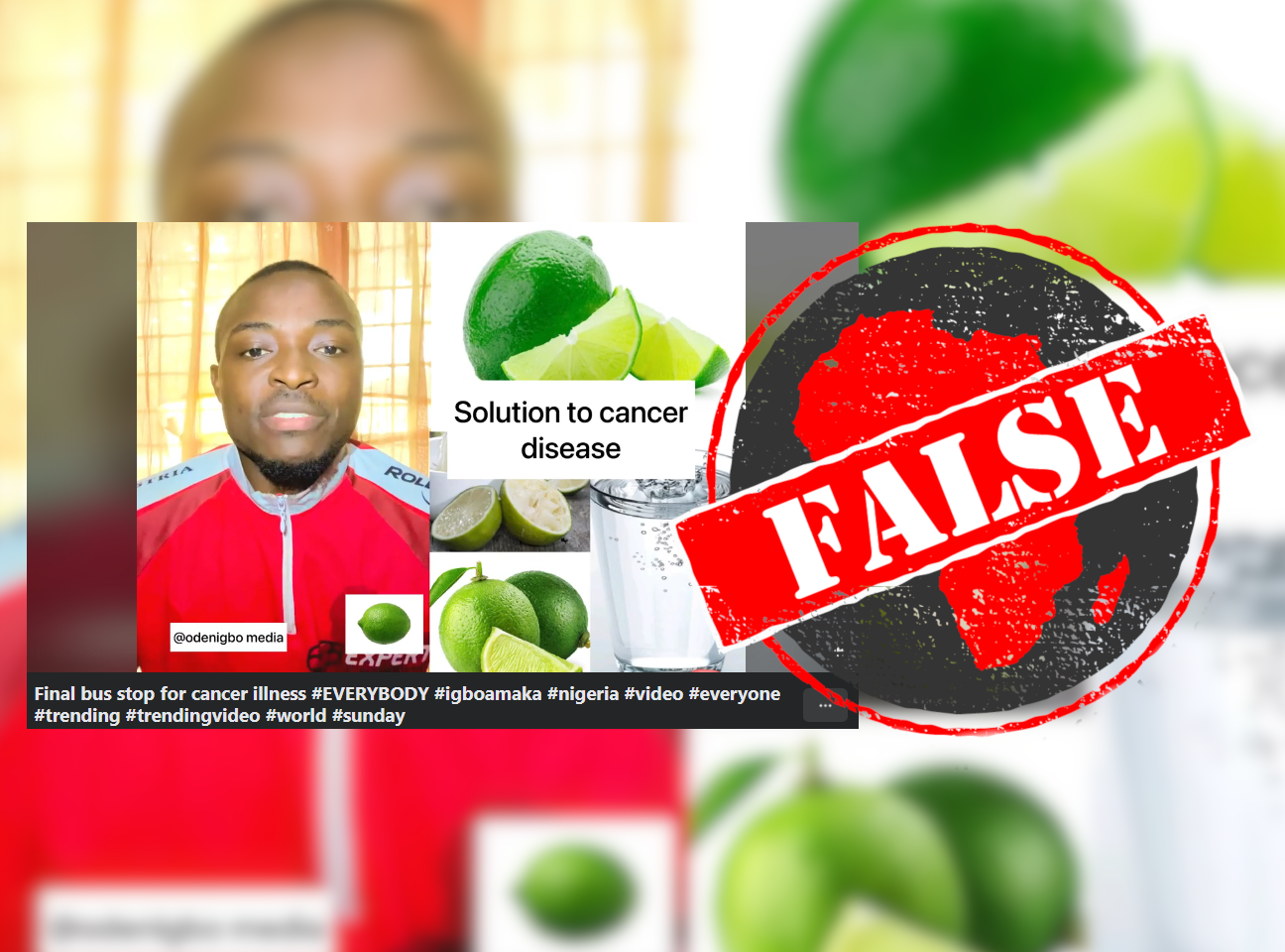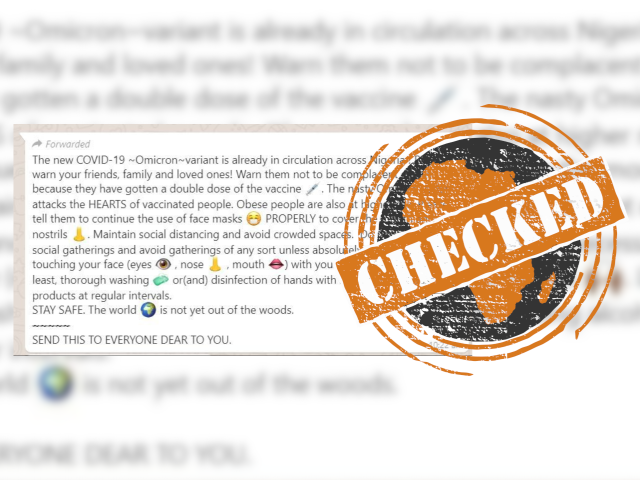IN SHORT: A Facebook post circulating in Nigeria claims that lime water can cure cancer. Experts say this is not true.
A video circulating on Facebook in Nigeria claims drinking a mix of lime and water can cure any form of cancer.
The person in the video, dated 28 May 2023, instructs viewers in a mixture of Igbo and English languages to put peeled lime in a glass of warm water. He says the concoction should be taken twice a day, in the morning and at night, for three months.
Cancer is a disease that causes an abnormal growth of the body's cells that spreads to other parts of the body.
The video has been viewed over 57,000 times while the same claim has been made elsewhere on Facebook here, here and here.
But is there any evidence that lime water can cure cancer? We checked.

Benefits of lime
Lime is high in vitamin C, antioxidants and other nutrients. As a result, they may help boost immunity and reduce the chance of heart disease, says Healthline, a US-based website that shares medical content.
It adds that lime juice is alkaline with a pH level of 8 or above.
Potential of hydrogen, also known as pH, is used to express the level of alkalinity or acidity in something. Everything falls somewhere on a scale from one (lots of hydrogen and very acidic), to 14 (very little hydrogen and alkaline or “basic”). Different parts of the body maintain different levels of pH in order to function well.
Africa Check has previously looked into claims that you can cure cancer by making the body less acidic or more alkaline. But these claims misinterpret fundamental biological processes, including the regulation of the acid-base balance that is crucial for good health.
As Healthline points out, there is no scientific evidence to support the claim that alkaline water can treat, prevent or cure cancer.
It cannot cure cancer – expert
"Drinking lime water cannot cure cancer,” Abidemi Adenipekun, a professor of radiation oncology at the University of Ibadan, told Africa Check.
He said the post appeared to be based on the knowledge that making a cell’s environment more alkaline could make it toxic to cancer.
Some research has shown that high acid levels in a tumour can make it grow more aggressively, so making these cells more alkaline might play a role in future therapies. But it’s important to note that these are changes in the microenvironment around a tumour, rather than changes across the body.
These kinds of studies were not based on creating an alkaline environment in the human body. And changing the body’s pH could be dangerous. It is carefully regulated by a number of processes in the body, to keep functioning properly.
"Lime should be used as a supplement, and not be taken continuously. Those with cancer should also go for proper treatment," Adenipekun told Africa Check.
Republish our content for free
For publishers: what to do if your post is rated false
A fact-checker has rated your Facebook or Instagram post as “false”, “altered”, “partly false” or “missing context”. This could have serious consequences. What do you do?
Click on our guide for the steps you should follow.
Publishers guideAfrica Check teams up with Facebook
Africa Check is a partner in Meta's third-party fact-checking programme to help stop the spread of false information on social media.
The content we rate as “false” will be downgraded on Facebook and Instagram. This means fewer people will see it.
You can also help identify false information on Facebook. This guide explains how.





Add new comment